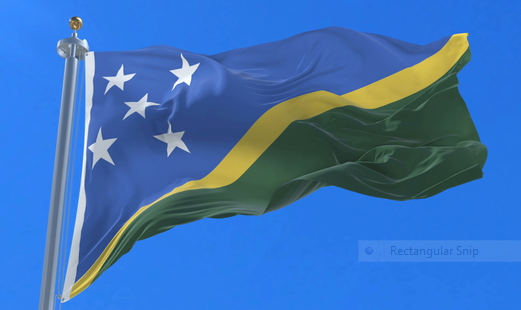I would like today, if I may, turn to the subject of intelligence collection, collation and sharing, matters I already touched upon earlier this week.
Last week’s civil unrest and resultant riots, arson and widespread looting, I rather gather caught the government and the police service in the Solomon Islands off guard and came as something not quite expected. I could be wrong in such assumptions, but having closely monitored the developments on the ground for several weeks, indeed months, albeit from afar, I was not surprised of the protests but alarmed by the intensity of looting and damage to properties that resulted.
Chinatown has generally always been the subject of mob invasion and the reason why in my time in office there were police contingency plans in place to prevent the premises in Chinatown being attacked and looted.
In 2006 the last time Chinatown was torched and looted on a scale similar to what has recently occurred was because police commanders at that time had failed to take the necessary preventative precautions as laid down in standing orders. The official inquiry that followed the 2006 riots returned the same evidence but also pointed out the manner in which tear gas had been used and no warnings given to the crowd at Parliament House by Australian seconded PPU, as should have been a standard procedure before firing tear gas, and essentially triggered the ensuing riots.
The Chinese community of business owners and traders in Chinatown has been left largely homeless after the lawlessness last week but generously, through the Chinese Community Association, said they will carry on and rebuild.
The community policing efforts and police media reporting, both policies I first introduced in the Solomon Islands in 1997 have proved valuable initiatives and community policing support was most evident and supportive of RSIPF operations in West Honiara last week.
The Solomon Islands is currently supported by AFP personnel, PNG troops and Fijian soldiers in patrolling and guarding key facilities and such personnel on the ground has returned things to a degree of normality, allowing citizens to move around, the traffic to flow and Parliament to have sat for a couple of days to consider important business.
It is my understanding that New Zealand and Samoa are standing by to send personnel if further requested to do so.
Australia generously responded to the Solomons call for assistance with a deployment of AFP and ADF troops in a “Helpen Fren” move covered by a treaty signed by the two governments in 2017 after RAMSI’s withdrawal from the Solomon Islands.
While I am sure the presence of Australian personnel back again in Honiara is welcomed there, in Australia there appears to be some mixed feelings in the community because of the new geo-political situation brought about by the Solomon Islands now having formal diplomatic relations with the Chinese (PRC) government.
Solomon Islands population now exceeds 710,000 and residency in Honiara, I believe to be close to 700 or so, maybe a few more.
I would have to guess the RSIPF’s establishment at less than 2000, more likely about 1,500 to 1,700 but considerably more and better equipped logistically than in my time (1997-1999) when police numbers did not exceed 700, albeit the establishment then provided for 999, but then there was a very strict moratorium in place to prevent any recruitment due to the dire state of the economy.
In recent days, the Hon, Prime Minister, in the light of the rioting last week has said he will “beef” up the RSIPF. I do not know what he might have in mind to do that, whether by increasing police numbers or with equipment, including transport etc.
If police numbers were to be increased then consequently it would mean more money for recruitment, training, accommodation, police facilities, equipment and logistics, but also added recurrent expenditure for a larger police establishment.
My view, for what it might be worth, would be to examine and improve police intelligence operations and intelligence sharing by using new technology now commonly in use in police forces world-wide.
If last week’s insurgency did take the government and police force by surprise, than it strikes me that intelligence gathering should be essential and very much on the lines of the Special Branch I referred to in an early letter.
No one, I am sure would want to see an intelligence arm of the RSIPF operate in the style of ‘Big Brother’ all covertly and give rise, perhaps to mistrust and concern for its intelligence operations, but a combination of overt intelligence and a mix of technological surveillance, cyber operations and facial recognition surveillance work would, I feel, add to the operational work and success of police operations and without too much of a “beefing” up at high and ongoing recurrent costs.
There are many new technological advances to aid police work and I mention just a few, but not all ideal, at this stage for use in the Solomon Islands.
1. Use of drones
2. Facial recognition software
3. Biometrics
4. Voice technology
5. Robots
6. Thermal imaging, and
7. Artificial intelligence.
I know the RSIPF has already used drones during police operations, but the other technologies would be worth looking into.
I will just end mentioning facial recognition software. The goal of facial recognition software is that it can help improve safety and security in a number of instances. If the RSIPF already had face technology software last week how easy it would have been to have on record the images of the hordes of looters and to arrest them.
Yours sincerely
Frank Short



